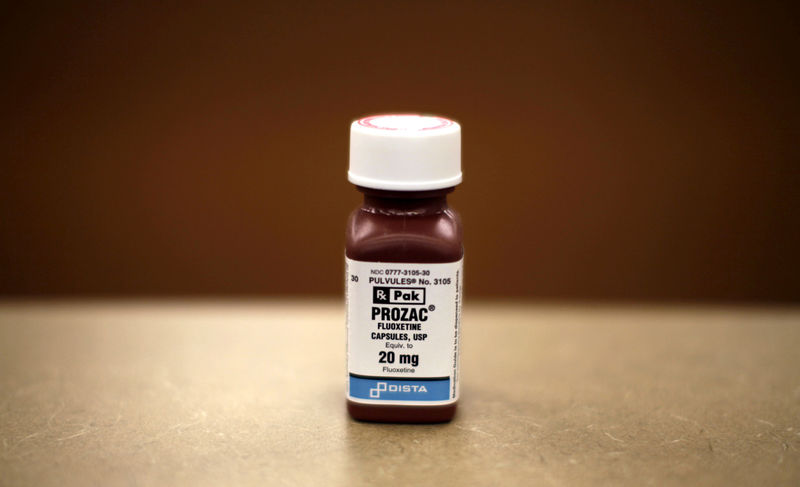Five things to watch in markets in the week ahead
On Friday, UBS analysts adjusted their outlook on Eli Lilly (NYSE:LLY) shares, reducing the price target from the previous $1,100.00 to $1,050.00. Despite the decrease, they upheld their Buy rating on the pharmaceutical giant, which maintains a market capitalization of $737 billion. The revision followed Eli Lilly’s first-quarter performance for 2025, which, according to the analysts, was strong but got overshadowed by several concerns. According to InvestingPro data, analyst targets for LLY currently range from $650 to $1,190, reflecting diverse market opinions about this prominent pharmaceutical player.
One of the primary issues affecting investor sentiment was the announcement that CVS Caremark would favor Novo’s Wegovy over Eli Lilly’s Zepbound in its formularies. This decision has raised worries about the pricing power within the GLP-1 class of drugs, which both Wegovy and Zepbound belong to. Furthermore, Eli Lilly set lower-than-anticipated expectations for its obesity treatment, orfo, based on the SURMOUNT-5 study results, which showed a 13.7% weight loss compared to the expected 15-16%.
Additionally, Eli Lilly withdrew the Heart Failure with preserved Ejection Fraction (HFpEF) indication for its drug tirzepatide, a move that also contributed to the decline in the stock’s value. InvestingPro data shows the stock has fallen 10.22% over the past week, though it maintains strong fundamentals with a GREAT financial health score and impressive 32% revenue growth. The market’s reaction also reflected a broader shift in investment trends, with a rotation from healthcare into technology stocks.
Despite these setbacks, UBS analysts believe the market’s reaction might be excessive. They pointed out that the covered lives under CVS Caremark are relatively low, estimated at 1.6 million people based on UBS Evidence Lab analysis. Eli Lilly’s management also reaffirmed its forecast for mid to high single-digit price erosion, which could mitigate some concerns. The analysts also suggested that Eli Lilly might be underestimating the potential of its ATTAIN study for orfo, comparing it to the open-label SURMOUNT-5 trial and semaglutide’s STEP-1 study, which indicated a 14.9% weight loss over 68 weeks.
In regard to the withdrawal of tirzepatide’s HFpEF indication, the analysts noted that all patients under this indication are already covered by obesity indications. They also speculated that Eli Lilly might leverage subgroup data from future cardiovascular outcome trials (CVOT) to reapply for this indication at a later date. Despite recent market volatility, InvestingPro reveals the company maintains a strong dividend track record with 55 consecutive years of payments and 15.38% dividend growth in the last twelve months. For deeper insights into LLY’s valuation and growth prospects, investors can access the comprehensive Pro Research Report, available exclusively to InvestingPro subscribers.
In other recent news, Eli Lilly and Company reported its first-quarter results for 2025, showing a 45% increase in revenue year-over-year, driven by strong sales of key products. Despite this revenue growth, the company missed its earnings per share (EPS) forecast, reporting $3.34 against an expected $3.46, leading to a negative market reaction. Eli Lilly adjusted its full-year 2025 earnings forecast to a range of $20.78 to $22.28 per share, which is below the anticipated $22.40, but maintained its revenue projection at $58-61 billion. Cantor Fitzgerald maintained its Overweight rating on Eli Lilly with a $975 price target, expressing confidence in the company’s market position despite competitive pressures from CVS Health (NYSE:CVS)’s new agreement with Novo Nordisk (NYSE:NVO). Leerink Partners also reaffirmed its Outperform rating and a $944 price target, viewing the recent stock dip as a buying opportunity. The firm remains optimistic about Eli Lilly’s long-term potential, particularly for its drug orforglipron. CVS Caremark’s partnership with Novo Nordisk to make Wegovy its preferred weight-loss drug has created competitive challenges for Eli Lilly, impacting its Zepbound product. Despite these developments, Eli Lilly continues to focus on its strategic investments in manufacturing and R&D to drive future growth.
This article was generated with the support of AI and reviewed by an editor. For more information see our T&C.
